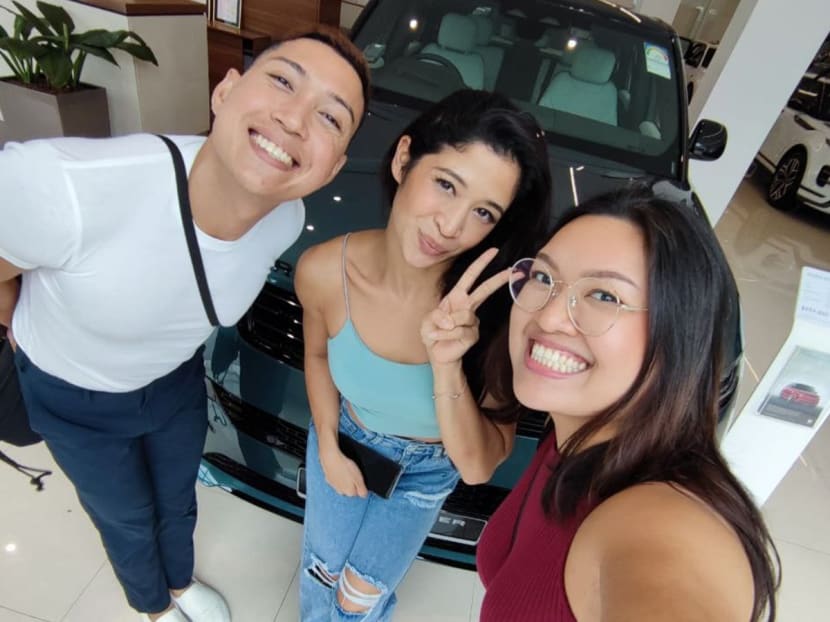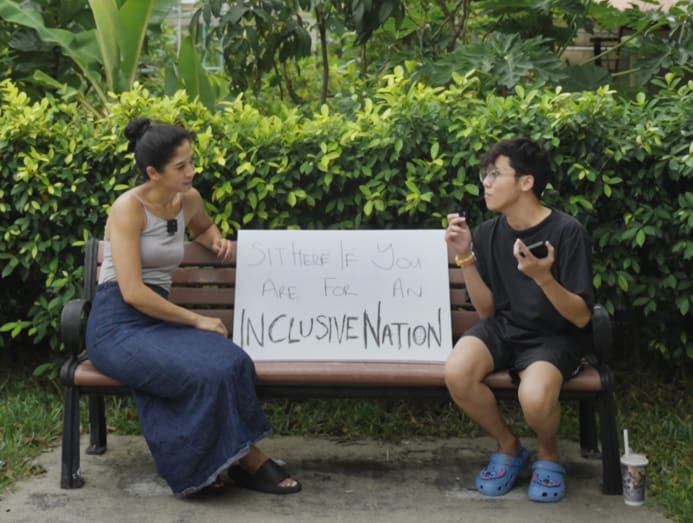Why we need to engage in conversations about race

Befriending people from different backgrounds is one small step towards fostering racial harmony, says the author (centre), pictured here with her friends, Hairianto Diman and Yana Gagarin. Photos: Munah Bagharib
Through education and open dialogue, the nation is moving forward on its journey toward racial harmony.
Singaporeans are no strangers to the concept of racial harmony – it’s a fundamental part of the nation’s fabric. And for good reason, too.
The racial tensions and riots of the 1950s and 60s forced the country to reevaluate its approach to race and religion. This shift was essential for Singapore’s progress. The Government enacted measures to promote religious harmony, such as the Maintenance of Religious Harmony Act in 1990 and the establishment of Racial Harmony Day in 1997.
In Singapore, race is defined as one’s ethnicity. My first encounter with the notion of race was in primary school when I learned that everyone must identify themselves formally as a particular race. Indeed, Singapore is one of the few countries where citizens must do so for official purposes.
As I’ve come to realise, race is a big factor in many aspects of life, including employment and housing opportunities. The Government’s quota system, designed to encourage racial integration, ensures that no single ethnic group dominates a particular area. This system fosters racial harmony by creating opportunities for Singaporeans to engage with people of different backgrounds, broadening perspectives and deepening mutual understanding.
The efforts have largely paid off, with large-scale racial disputes and riots becoming a thing of the past. A 2021 CNA-Institute of Policy Studies survey on race relations revealed that perceptions of racism have decreased since 2016, with 39 per cent of respondents believing that most Singaporean Chinese were at least mildly racist, down from 56 per cent. There were similar drops in this sentiment toward Singaporean Malays and Indians.
However, many minorities still experience racism on an individual level. The same survey found that 56.2 per cent of respondents believe racism remains an important problem, an increase from 46.3 per cent in 2016.
To better understand the current sentiment around racial harmony, I took to a park bench with a sign that read: “Sit here if you are for an inclusive society”. The conversations I had were nothing short of insightful.
If I’m honest, I find it hard to believe that racist remarks or encounters still happen in this day and age. It is exasperating. But as I reflect, I realise that perhaps I am in an echo chamber of individuals who are more aware and unwilling to tolerate any sort of racism.
Listening to the perspectives of the individuals I interviewed was refreshing. Hopeful even. Many interviewees acknowledged that our state of racial harmony has progressed over time. Yet, there is always room for improvement.
A RESPECTFUL APPROACH
There is a noticeable shift in the mindset of Singaporeans, especially among the younger generation. We are in an era where more people feel comfortable speaking their minds, pointing out offensive behaviour, and analysing and learning from various situations.
One interviewee recounted an experience where there was blatant disregard for a certain race at his workplace. His reaction was immediate; he addressed the issue directly and had a conversation about why the behaviour was rude and intolerable.
Another interviewee explained how he responded to a racist remark by emphasising that words are powerful and that people need to be mindful of how their words affect others.
An interesting perspective that emerged was the prevalence of racist remarks online. Netizens tend to hide behind their screens, saying things they might not express in person. So, we should be more discerning about online content and not enable negative sentiments.
After moments of sharing our experiences of racism, I felt a sense of heaviness. It is frustrating to know that racist encounters are still very much present today. But that is exactly why we need to engage in conversations about race. The way we approach these discussions is crucial. How can we respond to ignorance with grace?
It is challenging not to feel fired up when standing up for injustice but it’s also important to address these issues in a just and respectful manner. The goal is to educate others about why their actions are offensive, help them understand the consequences of their behaviour and ensure they learn not to repeat it.

So, how can we continue promoting racial harmony? It boils down to education, which can start from small acts like being sensitive to another’s culture and befriending people from different backgrounds.
“We should seek to clarify, seek to understand,” one interviewee mentioned. People are more likely to empathise with someone they know personally than with an abstract group. By nurturing friendships with different groups of people and getting to know people beyond stereotypes, we promote deeper connection, understanding and respect.
I believe our individual actions can have a collective impact. We can create safe spaces for discourse to understand the differences and struggles faced by other communities.
As our conversations ended, I could sense a shared commitment to building an inclusive nation and fostering harmony among our communities. Some people even shared their own actions to encourage inclusivity – like participating in community events or sharing their culture through food during festivities.
We have come a long way and there is more racial harmony than I sometimes give credit for. It is a constant effort and we cannot take our harmony for granted. As another interviewee shared: “We need to continue this momentum to show that we accept everyone.”
We are moving ahead one step at a time, so let’s not falter. Let us all strive to keep racial harmony alive.
ABOUT THE AUTHOR:
Munah Bagharib is an actress, presenter and content creator. She also serves as an ambassador for Dementia Singapore and the Singapore Cancer Society.







